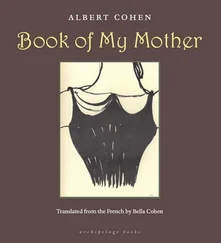The Le Vays were the conjugation of generations of linguists, etymologists, philologists, and lexicostatisticians who’d been querulously crossreferencing one another ever since their forebears — who on both sides included Lévais and Lévajs — Magyarized their surnames in solidarity with the Kingdom of Hungary following its fraught unification with the Austrian Empire in 1867. [Their grandparents?] had learned how to speak, read, and write all the Germanic, Slavic, and Romance languages, and how to speak, read, and at least write about all the Baltic languages too. [Their parents?] were capable of griping about the dissolution of the dual monarchy in its every single tongue, and in the Ural-Altaic, the Finno-Ugric-and-Permic, Samoyedic, and Oghuric — in everything but the Semitic. The stiff leatherskinned and authoritative edition that was their family would go to its death incomplete — the Le Vays the missing volumes.
Imre and Ilona had been doctoral candidates at the University of Budapest, where they’d maligned each other’s talents so publicly that when their professor paid a university janitor [how much?] to shelter them both in the janitor’s dacha [Hungarian equivalent?] outside Sárospatak, the beneficiaries, even with the Nazis at the door, interpreted the gesture as only partly altruistic. If the other part was a joke, though, the professor never laughed. Dr. Péter Simonyi died fighting with the Resistance. He never got to meet the couple’s daughter, born in spring — or witness its nuptials, civil in fall — both 1945.
But then neither did their parents and siblings [how many?]: Imre’s family had perished in Auschwitz/Auschwitz-Birkenau, while Ilona’s had been executed and left to the Danube [by the Arrow Cross?].
Following the war, the couple was unable to find employment — despite Imre’s formidable achievement as an Esperantist (his dissertation sought to officialize the artificial language’s first natural phonological evolution, the replacement of the phonemic ĥ with the k ), and despite Ilona being one of the great hopes of Hungarian bibliography (her dissertation had proposed conversion mechanisms between the author/title taxonomies then prevalent in Hungary? and the various faceted? international standards). They labored, instead, in the dissident underground, as translators, interpreters: in Russian, vragi naroda —“enemies of the people.”
In 1956, with a popular revolt roiling the boulevards of Budapest, and columns of Soviet tanks about to roll in[, stretching like the lists for arrest they were on], Imre and Ilona took Sari on a train to Szombathely, and telling her they were just visiting her new Gymnasium, slipped across the border[— parted the Iron Curtain — ]for Vienna.
In Vienna they renewed contacts with prewar colleagues, now adjunct émigrés abroad suffering from visa problems and pleionosis.Jobs were arranged, nonetheless[how?], and in 1958 they moved to Saint? Minnesota, initially to teach a discipline called Sovietistics at the Lutheran Bible Institute? and then to Berkeley, to teach Magyar language under the auspices of the Center for Slavic Studies at the University of California [but Hungarian’s not a Slavonic language?].
Sari attended Berkeley for what she then called her bachelorette’s, mistress’s, and PhD degrees, initially studying applied linguistics, though under the guidance of Professor Debora Laklov she chose to do doctoral work in the specialized field of sociolinguistics, focusing particularly on the confluence of language and gender [on the genderlects of disclosure? second-language intimate differencing/contextual integrities?]. “Iceman,” to her, was more than an occupation, but not in the sense that it might’ve been to her future father inlaw, while “Icewoman,” which term Eve might’ve used to describe her daughter inlaw, would become similarly reprehensible. “Iceperson” was less deterministic, preferred. Sari’s dissertation, “Male without Prefix, Male without Suffix: Volapük, Esperanto, Ido, Interlingua, and the epicene misnomer in international(ist) language(s),” became a chapter in her seminal [no, no] book, Toward a New “Neuter”: what is ideal about the sexist, and what is sexist about the ideal, Berkeley, CA: University of California Press, 1979.
In September 1973, Sari traveled to a Reassessing Animacy summit at the University of Texas, Austin, leaving Abs with their two year old son, and prompting a visit from Eve. Abs insisted he was managing on his own, but Eve refused to accept this, and wouldn’t pass up an opportunity to spend time with her grandson who at the time was two years old.
Eve had strict ideas about the proper way to raise a child, but none approached the method by which Abs and Sari split their parenting duties: divvying up the caregiving by tallying, individually, at the end of each day, and together, at the end of each week, and then again monthly, their changings and feedings, playtimes, and sessions of counting and reading, to ensure an utterly equal distribution of responsibilities. Eve was not aware of this HadEve been aware that her coming to take charge of her grandson would not redound toward Abs’s total time spent with the child, and that, quite to the contrary, he’d have to make up whatever time he’d been relieved of upon Sari’s return, she might never have made the trip.
Eve would usually spend her visits sitting in the den of the splancher on Fulton Street[, bobbining mundillo, or reading only the best new American fiction][— Leon Uris, Herman Wouk — ]while Cohen slept in his playpen, or toddled on the floor. But on this visit she decided that her grandson’s rompers were no better than rags, and that there was no one better than her, there was no one else but her, to dress him appropriately.
As the Le Vay-Cohens had only one car — a Ford Pinto, which Abs had taken to work — and as Eve wasn’t able to ride a bicycle, especially not with a grandson atop, she called for a cab, raided the pantry for supplies, and the note on its door for the address of Sari’s parents , whose atopic dermatitis that’d prevented them from stopping by was surely noncontagious. Eve wasn’t familiar with the greater Bay Area, so might not have expected the hour drive, the traffic, the toll bridge, or the $48 that got her to Hillcrest Road, in Claremont. After the Le Vays assured her she hadn’t been swindled but didn’t offer to contribute to the fare, Eve gave them stringent instructions regarding Cohen’s regimen[— the Le Vays had never been left alone with their grandson before? — ], had them repeat to her his feeding times, on what foods in what portions, which she’d provided in a diaper bag along with diapers, wipes, powders, creams, told them she’d be back in two hours, apologized to the driver for keeping him waiting, and asked to be taken “downtown.” [Why didn’t she ask the Le Vays to recommend a children’s clothingstore?]
She was let off in San Francisco[, paid the driver another extortionate fee], went shopping. It was while exiting a Family Wearables on Page Street and turning onto Market, having purchased a pair of overalls and onesie pajamas, that she walked directly into a VW Combi, described only as “tiedyed,” its drivers never described and so never identified — a hit and run [she was left to bleed to death on the sidewalk].
The body lay at the UCSF Medical Center and, since Eve’s driver’s license listed her residence as New York, and the Le Vays’ address was the only local contact contained in her purse, it was Ilona who got the call, and it was Imre who called Abs[— imagine the amount of energy being used in enthusiasm control]. At UCSF Medical, Abs could identify the body only by pantsuit and purse. After, he went to pick up his son from his inlaws’, and call his wife, who convinced him that an earlier flight could change nothing. Finally, Abs called his father, who broke. Joseph was unable to decide whether to have the body sent back to New York or buried out in California, and Abs was unable to tell his father that there wasn’t much of a body left to bury, and so Eve was cremated, on Sari’s recommendation. [COMPRESS.]
Читать дальше












